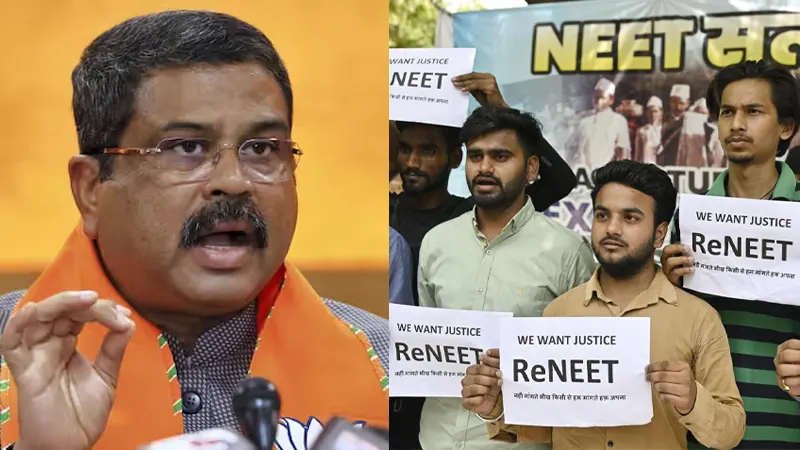The NEET & NET exam controversy has turned out to be the biggest challenge for the Modi Government 3.0 Cabinet. While NEET Question Paper Leak has amped up demands for re-examination of every medical aspirant, the Education Ministry's credibility was dented after it cancelled NET exams a day after conducting the papers. Education Ministry informed that NET Question Papers were leaked on darknet and were available for Rs 5000. Therefore, NET Exams 2024 were also scrapped by the Ministry. As a result, the opposition is demanding the resignation of Union Education Minister Dharmendra Pradhan.
In the meantime, the central government on Friday night notified the Public Examinations (Prevention of Unfair Means) Act, 2024, which aims to prevent unfair means in public examinations and common entrance tests held across the country. Below is what are provisions in the new anti-paper leak law-
- Under this law, leaking the paper or tampering with the answer sheet will be punishable with a minimum of 3 years in jail. This can be extended to 5 years with a fine of up to Rs 10 lakh.
- If the service provider appointed to conduct the examination is found guilty, he/she will be sentenced to 5 to 10 years in jail and fined up to Rs 1 crore. If the service provider is involved in illegal activities, the cost of the examination will be recovered from him/her.
- The Public Examination (Prevention of Unfair Means) Act was passed by the Lok Sabha on 6 February this year and the Rajya Sabha on 9 February. President Draupadi Murmu approved the bill on 12 February and converted it into law.
- This law will include examinations of Union Public Service Commission (UPSC), Staff Selection Commission (SSC), Railway Recruitment Board (RRB), Institute of Banking Personnel Selection (IBPS), and National Testing Agency (NTA). Recruitment examinations of all the ministries and departments of the Center will also be under the purview of this law. Under this, all crimes will be cognizable and non-bailable.
- During the investigation, if it is established that any senior official from the service provider had allowed or was involved in committing the offence, he will face imprisonment for a minimum of three years, which can go up to 10 years, and a fine of ₹ 1 crore.
- The notification mentions the Bharatiya Nyaya Sanhita but adds that the provisions of the Indian Penal Code will remain in effect until it is implemented. The Sanhita and the other criminal laws are scheduled to come into effect on July 1.
